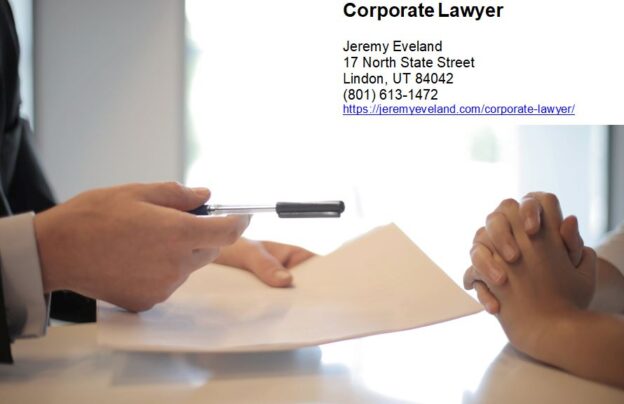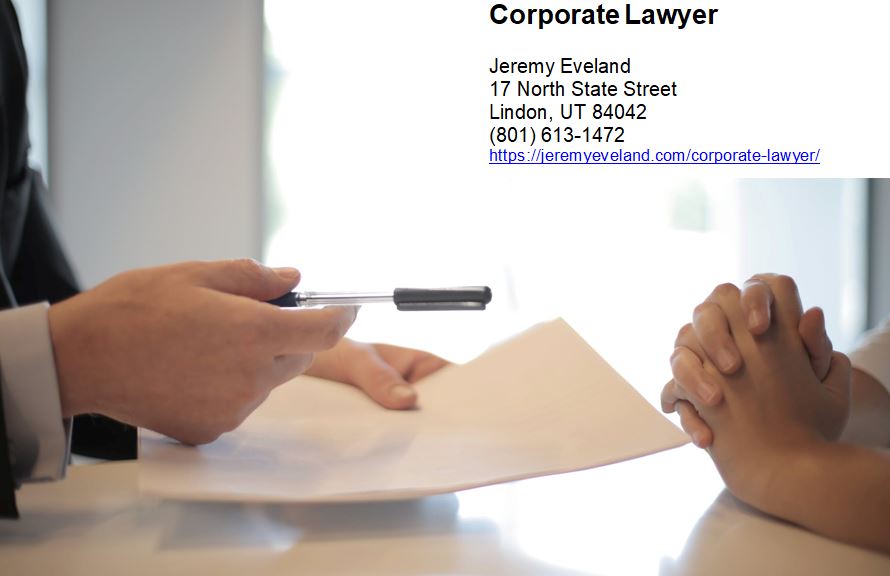In today’s globalized business environment, it is crucial for large corporations to ensure their compliance with legal requirements, particularly when it comes to immigration laws. The Department of Homeland Security’s Form I-9 serves as a vital tool in this regard, as it verifies the identity and employment eligibility of individuals hired by companies. However, navigating the complexities of I-9 compliance can be a daunting task for businesses, especially those with a large workforce. In this article, we will explore the significance of I-9 compliance for large corporations, shedding light on its implications and providing valuable insights to help businesses ensure adherence to the law.
Understanding I-9 Compliance
What is I-9 Compliance?
I-9 compliance refers to the process of verifying the identity and employment authorization of individuals hired for employment in the United States. The I-9 form, also known as the Employment Eligibility Verification Form, is used to collect the necessary information and documentation from both employees and employers to establish compliance with immigration laws.
Importance of I-9 Compliance
Complying with I-9 requirements is crucial for businesses, especially large corporations. Non-compliance can lead to severe consequences, including hefty fines, penalties, and, in some cases, criminal charges. By ensuring proper I-9 compliance, businesses can mitigate legal risks, maintain a strong reputation, and adhere to ethical standards. Additionally, companies that prioritize I-9 compliance are better positioned to protect their workforce and maintain a fair and inclusive working environment.
I-9 Compliance for Large Corporations
Large corporations face unique challenges when it comes to I-9 compliance due to their size, diverse workforce, and complex hiring processes. With a significant number of employees and multiple locations, managing I-9 compliance can become overwhelming if not properly addressed. Therefore, large corporations need to establish comprehensive systems and protocols to ensure consistent compliance with I-9 regulations.
Requirements for I-9 Compliance
Who Needs to Complete the I-9 Form?
Every employee hired after November 6, 1986, for employment in the United States must complete the I-9 form. This includes both citizens and non-citizens. Employers are responsible for ensuring that all employees complete Section 1 of the I-9 form on or before their first day of employment.
Timelines for Completion
the completion of the I-9 form has specific timelines that both the employee and employer must adhere to. Section 1 of the form must be completed by the employee no later than the first day of employment. Section 2, which requires the employer to examine the employee’s documentation, must be completed within three business days of the employee’s first day of work.
Proper Documentation for I-9 Forms
To establish compliance, employees must provide specific documents to their employers to prove their identity and work authorization. The I-9 form provides a list of acceptable documents, which can include passports, driver’s licenses, social security cards, or a combination of documents. Employers must examine these documents to ensure their authenticity and record the information accurately on the I-9 form.
Establishing an I-9 Compliance Program
Designating an I-9 Compliance Officer
Large corporations should designate an individual or team to serve as an I-9 compliance officer. This person or team will oversee the I-9 compliance program, ensuring that all employees are adhering to the necessary processes and regulations. By having a dedicated compliance officer, large corporations can streamline the I-9 compliance process and ensure consistency throughout the organization.
Developing Policies and Procedures
Creating clear and comprehensive policies and procedures for I-9 compliance is essential for large corporations. These guidelines should outline the steps employees and employers must follow when completing and maintaining I-9 forms. By establishing consistent practices, corporations can reduce the risk of errors, omissions, and potential legal consequences.
Training Employees on I-9 Compliance
Proper training is critical for large corporations to ensure that all employees understand their responsibilities regarding I-9 compliance. Training programs should cover the completion of the I-9 form, proper document verification procedures, and the importance of maintaining accurate records. By educating employees on I-9 compliance requirements, large corporations can foster a culture of compliance and mitigate the risk of non-compliance.
I-9 Audits and Penalties
Understanding I-9 Audits
I-9 audits are conducted by the U.S. Immigration and Customs Enforcement (ICE) to ensure compliance with federal immigration laws. During an audit, ICE officials review a company’s I-9 forms and supporting documentation to verify the accuracy and completeness of the forms. Large corporations are subject to audits, which can occur at any time, so it is crucial to maintain proper I-9 compliance.
Common I-9 Violations and Penalties
Failure to comply with I-9 regulations can result in significant penalties for large corporations. Common violations include incomplete or missing forms, failure to verify and properly record employee documentation, and knowingly hiring unauthorized workers. Penalties for non-compliance can range from fines to loss of federal funding and even criminal charges.
Mitigating Risks through Self-Audits
Large corporations can minimize the risk of non-compliance by conducting regular self-audits of their I-9 forms. Self-audits involve reviewing and correcting any errors or deficiencies in existing forms and documentation. By proactively identifying and addressing issues, corporations can demonstrate good faith efforts toward compliance and potentially mitigate penalties in the event of an official audit.
Managing I-9 Compliance for Large Corporations
Challenges Faced by Large Corporations
Large corporations encounter specific challenges when it comes to managing I-9 compliance. These challenges can include managing a high volume of employees, decentralized hiring processes, language barriers, and complexities related to mergers and acquisitions. It is crucial for large corporations to proactively address these challenges to maintain proper I-9 compliance.
Implementing an Efficient System
To streamline I-9 compliance, large corporations can implement an efficient system to manage the process. Utilizing technology, such as electronic I-9 systems, can help automate the completion, storage, and retrieval of I-9 forms. Implementing an efficient system minimizes the risk of errors and allows for easier tracking and reporting of compliance efforts.
Outsourcing I-9 Compliance Management
Large corporations may find it beneficial to outsource some or all of their I-9 compliance management to professional service providers. These providers specialize in I-9 compliance and can offer expertise, resources, and ongoing support to ensure corporations maintain compliance with changing regulations. By outsourcing, corporations can focus on their core business operations while having peace of mind knowing their I-9 compliance is being handled expertly.
Electronic I-9 Systems
Benefits of Electronic I-9 Systems
Using electronic I-9 systems offers numerous advantages for large corporations. These systems allow for more efficient and accurate completion of forms, automated verification processes, secure storage of documents, and easier retrieval during audits. Electronic systems also provide built-in safeguards and compliance checks to reduce errors and maintain up-to-date compliance with changing regulations.
Features to Look for in an Electronic I-9 System
When selecting an electronic I-9 system, large corporations should consider certain key features. These include integration with existing HR systems, customizable workflows based on organizational structure, secure data encryption, remote access for multi-location support, and robust reporting capabilities. A comprehensive system that meets these criteria will enable large corporations to effectively manage I-9 compliance.
Implementing Electronic I-9 Systems in Large Corporations
The successful implementation of electronic I-9 systems in large corporations requires careful planning and execution. It is essential to involve key stakeholders from HR, legal, and IT departments to ensure a seamless integration with existing systems and processes. Adequate training and communication with employees are also crucial to maximize the benefits of electronic systems and ensure adherence to required procedures.
I-9 Compliance Best Practices
Consistent and Timely Completion of I-9 Forms
To maintain I-9 compliance, large corporations must prioritize the consistent and timely completion of I-9 forms. By establishing clear expectations and enforcing deadlines, corporations can create a culture of compliance where employees understand the importance of completing the forms accurately and promptly.
Maintaining Well-Organized Records
Large corporations must maintain well-organized records of their I-9 forms and related documentation. Proper record-keeping includes implementing an effective filing system, ensuring secure storage of sensitive information, and establishing policies for document retention and purging. Well-organized records enable corporations to efficiently respond to audits and demonstrate compliance.
Regular Internal Audits and Updates
Conducting regular internal audits of I-9 forms is an important best practice for large corporations. Internal audits help identify any errors, inconsistencies, or outdated practices that need to be addressed promptly. By staying proactive, corporations can prevent potential non-compliance issues and ensure ongoing adherence to I-9 regulations.
Employee Training and Education
Educating Employees on I-9 Requirements
Educating employees on I-9 requirements is crucial to foster compliance within large corporations. Employee training programs should familiarize employees with the purpose of the I-9 form, their responsibilities in completing the form accurately and on time, and the consequences of non-compliance. Ongoing education ensures that employees are well-informed and can contribute to maintaining I-9 compliance.
Keeping Employees Informed about Immigration Changes
Large corporations should keep their employees informed about any changes in immigration regulations that may affect I-9 compliance. This includes updates on acceptable documents, verification processes, and any other changes to the I-9 form itself. By providing timely updates and engaging in open communication, large corporations can ensure that their employees remain compliant with evolving immigration requirements.
Employee Responsibility in I-9 Compliance
Every employee has a responsibility to comply with I-9 requirements. Employees must provide accurate and valid documentation to their employers, complete Section 1 of the I-9 form truthfully and timely, and adhere to any company policies or procedures related to I-9 compliance. By understanding their role and fulfilling their obligations, employees contribute to the overall compliance efforts of large corporations.
Addressing Common I-9 Compliance Issues
Retaining I-9 Forms and Purging Old Records
Maintaining proper records retention practices is crucial for large corporations to ensure I-9 compliance. Corporations must retain I-9 forms for a specific period, typically three years from the date of hire or one year from the date of termination, whichever is later. Purging outdated records in a timely manner helps ensure the maintenance of up-to-date and accurate records.
Re-verification Requirements for Employees
In certain circumstances, large corporations may need to re-verify an employee’s work authorization. Common situations that trigger re-verification include the expiration of employment authorization documents or when an employee’s work authorization status changes. It is essential for companies to establish clear policies and procedures for re-verification to ensure compliance with immigration regulations.
Resolving Errors and Incomplete Forms
Errors or incomplete I-9 forms can present compliance challenges for large corporations. When errors or omissions are discovered, corporations should follow a standardized process for addressing and correcting these issues. This may involve reaching out to the employee for additional information, completing new forms as needed, and properly annotating the corrections made.
Frequently Asked Questions (FAQs)
What is the purpose of the I-9 form?
The purpose of the I-9 form is to verify an employee’s identity and employment authorization in the United States. It ensures that individuals hired for employment are legally eligible to work and helps maintain compliance with immigration laws.
Who needs to complete Section 2 of the I-9 form?
Employers are responsible for completing Section 2 of the I-9 form. This section requires employers to examine the employee’s original documentation, verify its authenticity, and record the relevant information on the form.
What are the consequences of non-compliance with I-9 regulations?
Non-compliance with I-9 regulations can result in severe consequences for businesses, including fines, penalties, loss of federal funding, and potential criminal charges. It is in the best interest of businesses, especially large corporations, to prioritize I-9 compliance to avoid such consequences.

